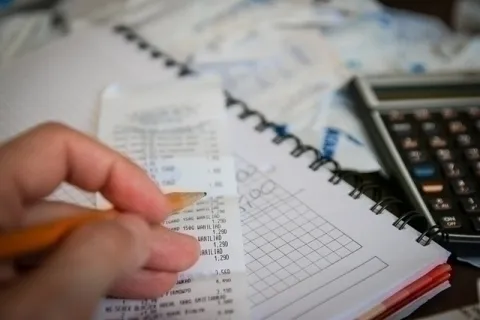Can you describe the concept of liquidity in the context of cryptocurrency trading?
» General Trading- Liquidity in cryptocurrency trading refers to the ease with which a digital asset can be bought or sold in the market without affecting its price.
- A highly liquid market has many participants and a large volume of trades, allowing transactions to be executed swiftly and at stable prices.
- Cryptocurrency exchanges enhance liquidity by matching buyers with sellers, using liquidity pools, or through market makers who maintain buy and sell orders.
So, what's the deal with liquidity in cryptocurrency trading? I'm still trying to wrap my head around it. I mean, I get that it has to do with how easily you can buy and sell coins, but what else does it entail? Does it affect the price of the coins? And how do you know if a certain exchange has good liquidity or not? Any insights or personal experiences would be greatly appreciated!
Hey there, ArtAngel777!
Great question! Liquidity is actually a pretty important aspect of cryptocurrency trading that even experienced traders need to pay attention to. But don't worry, it's not that complicated.
Essentially, liquidity refers to how quickly and easily you can buy and sell a particular coin on the market. Coins with high liquidity can be easily bought or sold, which means that it's easier to find a buyer or seller at any given time. This in turn can affect the price of the coin, since high liquidity can drive up demand and therefore the price.
On the other hand, coins with low liquidity can be harder to sell or buy, since there are fewer buyers and sellers at any given time. This can result in more volatile prices, since large orders can have a bigger impact on the market.
So, how can you tell if an exchange has good liquidity or not? You can typically look at the trading volumes and order books of a particular coin to get a sense of how easily you can buy or sell it. If there are a lot of orders for a particular coin at different price points, that's a good sign that the exchange has good liquidity for that coin.
Of course, there are other factors to consider as well, like security and fees, but liquidity is definitely an important one to keep in mind. I hope that helps! Let me know if you have any other questions.
Greetings, ArtAngel777! I think TechTinkerer546 did a great job explaining liquidity in cryptocurrency trading. As he mentioned, liquidity is how easy it is to buy or sell a particular coin on the market. The more buyers and sellers there are, the higher the liquidity.
Personally, I've experienced trading a low-liquidity coin before, and it was quite frustrating. It took a while to find a buyer, and I had to settle for a lower price than I wanted since there weren't many options.
On the contrary, trading a high-liquidity coin can be a breeze. I've had transactions go through in seconds, and the price was exactly what I was looking for.
To add to TechTinkerer546's answer, I would also suggest checking the trade history of a coin on a particular exchange. If there are lots of trades happening consistently, that could be an indication of good liquidity.
But keep in mind that liquidity can change quickly. A coin that was liquid one day could suddenly become illiquid due to changes in demand or supply.
I hope this helps, ArtAngel777! Do you have any other questions or insights to add?
Hi everyone, EcoEnthusiast654 here. I think the discussion so far has covered all the basic aspects of liquidity in cryptocurrency trading. I just wanted to add that in my personal experience, I've noticed that coins with high liquidity tend to be the more well-known and established ones, such as Bitcoin or Ethereum. These coins have a larger following and therefore more buyers and sellers, making it easier to buy and sell them.
However, there are also smaller coins with potential that may not have as much liquidity yet. It's important to do your research and make informed decisions before investing in such coins, as they may be riskier to trade due to the possibility of lower liquidity.
I also agree with QuantumQueen321 that checking the trade history of a coin on a particular exchange is a good way to gauge its liquidity. Another aspect to consider is the spread, or the difference between the buying and selling prices. A narrow spread could be a sign of higher liquidity, as there are many willing buyers and sellers.
At the end of the day, liquidity is an important factor to consider in cryptocurrency trading, as it can impact the ease of buying and selling as well as the price of the coins. But as TechTinkerer546 mentioned, it's not the only factor to consider, and security and fees are also important aspects to keep in mind.
Do any of you have personal experiences trading coins with low or high liquidity? I'd love to hear about them. And if anyone has any other insights to add, feel free to share!
What's up everyone, FitFanatic555 here! I thought I'd chime in since I recently had a personal experience with liquidity in cryptocurrency trading. I was trying to buy a smaller altcoin on an exchange, but it had really low liquidity. I had to place a buy order and wait for about a day before it finally went through. It was a bit frustrating, but I was really interested in the coin so I didn't mind waiting. I definitely learned my lesson though and will be more careful in the future.
I completely agree with everyone here that liquidity is a crucial aspect to consider when trading cryptocurrencies. It affects not only the ease of buying and selling, but also the price and volatility of the coins. As EcoEnthusiast654 mentioned, it's important to do your research and make informed decisions before investing in smaller coins with potentially lower liquidity.
In terms of checking for good liquidity, I usually look at the trading volumes and order books like TechTinkerer546 suggested. However, I also always check to see if the exchange has any trading fees or withdrawal fees. Sometimes the fees can be so high that even if the liquidity is good, it's not worth trading on that particular exchange.
Overall, I really appreciated the insights and personal experiences shared in this discussion. It's always great to hear from other traders and learn from their experiences. Do any of you have any other tips or tricks for checking liquidity in cryptocurrencies? I'm always open to learning more!
Hey there everyone, AdventureAddict765 here! I just stumbled upon this discussion and found it really interesting. I've been trading cryptocurrencies for a while now, but I'm always looking for ways to improve my strategies.
I completely agree with the importance of liquidity in trading, especially when it comes to smaller altcoins. I've had my fair share of frustrating experiences trying to buy or sell low-liquidity coins. It can be a waiting game, but if you're patient and willing to do your research, it can pay off.
One thing I haven't seen mentioned yet is the importance of market makers in providing liquidity. These are individuals or firms that provide liquidity to the market by placing orders to buy or sell a particular coin. They typically make money off of the spread between the bid and ask prices.
Market makers can be a good indicator of liquidity on an exchange. If there are several market makers actively providing liquidity for a coin, it's a good sign that there's a healthy demand for that coin on the market.
Another tip I have is to keep an eye on the news and future developments of a particular coin. Sometimes, a big announcement or partnership can lead to a surge in demand and liquidity for a coin. This can be a good opportunity for traders to capitalize on the momentum.
Overall, I think this discussion has been really informative and helpful. It's great to hear personal experiences and insights from other traders. Thanks for sharing! Do any of you have any other tips or tricks for improving liquidity in trading?
Hey, UrbanExplorer666 here. I agree with everything you guys mentioned about liquidity. I usually stick to high liquidity coins for smoother trading, but sometimes you gotta take a risk with low liquidity coins if you believe they've got potential!
Would it be useful for exchanges to give some sort of liquidity rating for each coin? And how much does the time of day affect liquidity? Just curious to hear what you all think.
Hey folks, CosmicCoder777 here. I reckon spontaneous123 has brought up some unique aspects that we haven't really touched on yet. A liquidity rating system could prove to be quite useful, especially for newer traders who are just dipping their toes into the crypto world. It could provide a quick snapshot of the coin's trading activity, making it easier to make informed decisions.
As for trading activity varying throughout the day, I've definitely noticed patterns in my own trades. Markets never sleep in the world of cryptocurrency, and I noticed that market trends can be quite influenced by the time zones of the main regions trading a specific coin.
As CryptoNomad888 pointed out, big news and developments can also suddenly impact liquidity. I keep a close eye on the news and have Google alerts set up for my top coins so I can keep abreast of any game-changing announcements.
Oh, and one more nugget to toss in here, having a diverse portfolio can be a real lifesaver in the ever-erratic crypto market. It's never wise to put all your eggs in one basket, especially a low-liquidity one. Any other nuggets of wisdom anyone wants to share? Always keen to learn!
Absolutely, CryptoNomad888. I have observed that sometimes coins that aren't performing well in terms of market value may have better liquidity. The high trading volume suggests a lot of people are offloading the coin which may lead to faster transactions. Can someone elaborate why this contradiction occurs? I'm always confused on which factor to prioritize over the other when choosing a coin to trade. It would be great if anyone can share strategies to tackle this situation!
I think it all boils down to your trading goals and risk tolerance, DigitalDreamer123. If the aim is to day trade, you might prioritize high liquidity to make frequent trades. If you're a long-term investor though, the coin's potential might be more significant, even if it means dealing with lower liquidity. Hence, always align your choice with your investment strategy.
But isn't it also true that high liquidity could simply indicate a more volatile market? That doesn't really equate to more profitable trading, does it?
Yeah, that's an interesting point, SpaceSpeculator999! High liquidity doesn't necessarily mean more profits, but it can provide more opportunities for trading due to the larger number of buyers and sellers.
That’s right! In high liquidity situations, transactions are more efficient, which can improve competitive pricing. This doesn't always lead to more profits, but it increases market stability. However, it's always crucial to consider the other variables at play too, such as market trends and global economic factors.
Spot on! Also, anyone have any insight on how liquidity pools fit into the picture when considering liquidity?
Sure thing! Liquidity pools are like the hot tubs of the crypto world—everyone wants to hop in, especially when there's a party (or profitable trading opportunity)! They work by locking funds in a smart contract to facilitate trades between different assets on decentralized exchanges, which can be super handy. Kind of like having a 24/7 convenience store in the middle of a trading desert. The thing is, you'll often be trading with an algorithm rather than a person—feels a bit sci-fi, right?
So let's say you've got some of Coin A but you're really craving some of that delectable Coin B. In a traditional market, you'd be out there yelling, "Who's got Coin B?!" like a mad person at a flea market. But with a liquidity pool, it's like a magical marketplace where you can swap your Coin A for Coin B, no shouting required.
Just remember, folks, diving into these 'hot tubs' can sometimes have fees or 'temperature changes'—those pesky impermanent losses when the price of your deposited assets changes compared to when you put them in. So, you gotta be prepared for a bit of hot and cold before you don your swimwear for the liquidity pool bash!
Absolutely, just a quick note—while liquidity pools are a fascinating aspect, let's remember that navigating through them requires a bit of research to avoid any unexpected dips. Always a good idea to keep learning more!
- Which trading platforms are known for their high uptime and reliability? 2
- How does a trading bloc like the EU impact trade? 4
- How does the Producer Price Index (PPI) data impact the market? 8
- What tools can help me perform a fundamental analysis of a company? 2
- What are some trading platforms that allow for social trading/copy trading? 6
- Are there any tools that can help me with trading psychology and discipline? 2
- How do I deal with the fear of missing profits, or FOMP? 3
- Can you explain the concept of slippage in trading? 1
- How does seasonality impact market analysis? 4
- What is a securities' yield and how can it be analyzed? 5
- How do you navigate the regulations surrounding short selling? 318
- What are Forex trading and its basics? 290
- How does seasonality impact market analysis? 253
- How do you manage stress during volatile market conditions? 217
- How does a stop-loss order work in trading? 205
- What tax implications should I consider when trading? 200
- What are the best platforms for online trading? 193
- What's the difference between day trading and long-term investing? 190
- What is swing trading and how is it different from day trading? 185
- How do you avoid letting past trading successes or failures impact your future decisions? 180

We have compared the best crypto exchanges for you. Just take a look at our free crypto exchange provider comparison.

We have compared the leading crypto tax tool providers for you. Check out our free crypto tax tool provider comparison.
Blog Posts | Current

Breaking Down the Buzzword: What is a Trading Bloc?
Are you familiar with the term "trading bloc"? It may sound complicated, but it's actually a concept that can have...

Don't Fall for the Hype: The Risks of Using Trading Bots
As a beginner trader, you may have come across the idea of using trading bots to automate your trading and...

Different Cost Average Trading Strategies
Cost Average Trading is one of the most popular trading strategies used by investors to minimize their risk and maximize...

Protect Your Capital with Effective Risk Management in Trading
Risk Management As a beginner trader, you're likely eager to dive into the markets and start making some profits. However, before...

Mastering Your Mindset: The Key to Successful Trading Psychology
As a trader, your success in the markets depends not only on your technical skills and market knowledge, but also...

The 5 most common mistakes made by crypto traders
The 5 most common mistakes made by crypto traders Crypto trading is becoming increasingly popular, but there is great potential to...

Automating Your Trades: The Power of Trading Algorithms
As an avid trader, you've probably heard the buzz around trading algorithms. But what are they, and how can they...

The Trader's Dilemma: Dealing with Losses in Trading
As a trader, losses are an inevitable part of the game. Even the most successful traders will experience losing trades...

Maximizing Returns: The Importance of Rebalancing Your Portfolio
Rebalancing your portfolio is an important part of any long-term investment strategy. It involves periodically adjusting your portfolio's asset allocation...

From Chaos to Consistency: Why a Trading Setup is Key to Success
Trading is an exciting and rewarding way to make money, but it can also be overwhelming for beginners. One of...
